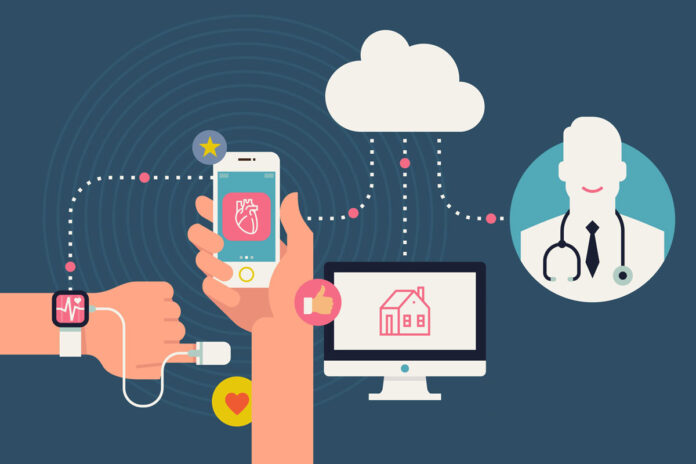What is virtual healthcare?
Virtual Healthcare: A term used in the healthcare field, and it refers to providing healthcare to patients remotely using modern digital tools that enable health care providers to communicate with patients, such as voice calls, video calls, and voice messages.
Virtual healthcare, or as it is known as teleMedicine, is one of the applications of healthcare communication technologies in the healthcare sector, where it is possible to communicate faster through it and more flexible and easy between doctors and their patients.
This is done through the use of advanced technologies remotely without the need for the presence of both the patient and his physician are in the same place, via video, messages, or apps.
Many patients today use health monitors or wearable fitness trackers to monitor any changes in their health and share that data with their doctors.

Advantages of virtual healthcare
This technology provides the patient with complete comfort and the speed of communication with their doctor by staying at home with the ability to do these necessary checks and follow up their health condition easily, in addition to reducing the need to travel, as it allows patients to consult with specialists outside the city without the need to travel.
Today there are many applications for smartphones or on the internet for uploading health information, such as reading blood glucose levels or wearable devices that makes measurement of blood pressure to be ready for wireless transmission of information to healthcare providers.
There are also wearable devices whose main goal is to record the necessary information of the patient, to be transmitted directly after that automatically including weight, heart rate, walking distance, posture control, tremors, physical activity or sleep patterns.
Home monitoring devices for elderly people or those with serious diseases such as Alzheimer’s are also included in telehealth, which detects changes in the patient’s normal activities.
In the same context, physicians can benefit from virtual healthcare by communicating with each other to obtain a teleconsultation or information from another specialist physician when the need arises.
Primary care providers can send examination notes and disease history, as well as lab results that patients have, as well as x-rays or other medical imaging reports, to the specialist for review.
The specialist may respond electronically, set a virtual appointment at the physician’s office, or request to see the patient.
Thanks to these teleconsultations, unnecessary personal referrals to the specialist can be avoided, as well as fewer waiting times for a physician’s response.
Disadvantages of virtual healthcare
In general, there are no specific drawbacks to virtual healthcare as much as there are some problems in this process, as it is considered a bit confusing for patients who are more comfortable with real communication with the caregiver, especially since virtual healthcare requires patients to control modern technological means to facilitate the communication process. And preview.
Another concern on the virtual healthcare is the consequences of clinical malpractice, it’s still unclear who will be responsible any malpractice happens and there is a lack of regulations that controls this technology.

